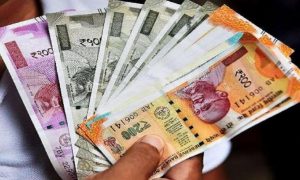The Supreme Court also said in computing such punitive damages, the capacity of the manufacturing enterprise should also be a factor.
Failure of a car manufacturer to provide an airbag system should be subject to punitive damages, which can have a deterrent effect, the Supreme Court has said. “The failure to provide an airbag system that would meet the safety standards as perceived by a car buyer of reasonable prudence, in our view, should be subject to punitive damages which can have a deterrent effect.”
And in computing such punitive damages, the capacity of the manufacturing enterprise should also be a factor, said a bench of Justices Vineet Saran and Aniruddha Bose. The bench said that a consumer while buying a car, would assume that the airbag would open automatically in case of collision.
Further, a consumer is not meant to be an expert in physics calculating the impact of a collision on the theories based on velocity and force, the top court said.
The observation came while hearing an appeal filed by Hyundai Motor India Limited against an order of the National Consumer Disputes Redressal Commission (NCDRC), which dismissed the appeal sustaining the compensation awarded by the State Commission.
The appellant is a vehicle manufacturer, and the appeal arises out of a complaint made by a car buyer concerning a defect in a vehicle, particularly concerning its safety features originating from its vehicle model Creta 1.6 VTVT SX+.
The vehicle, purchased on August 21, 2015, came with two front airbags and met with an accident on the Delhi-Panipat highway on November 16, 2017, resulting in substantial damage to the car.
The complainant suffered head, chest as also dental injuries, which he attributed to the non-deployment of airbags at the time of the accident. The state commission awarded a compensation of Rs two lakh for medical expenses and loss of income, Rs.50,000 for mental agony, and Rs 50,000 as the cost of litigation.
The state commission also said that failure in replacing the vehicle of the appellant will also attract an interest of seven per cent per annum of the value of the vehicle from the date of default.
The top court, in its order, said that the fact that the consumer has got the car repaired on insurance money would not impact the quantum of damages, which is partly punitive in nature in this case.
“We accordingly do not want to interfere with the decision of the National Commission. We do not find the reasoning of the Commission or the operative part of the order awarding damages to be perverse,” the bench said.





































